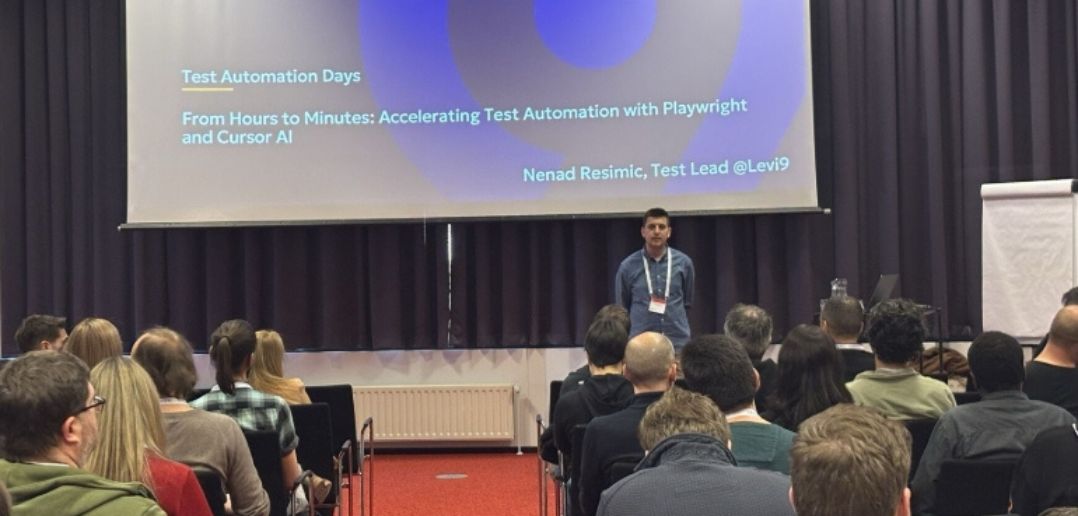The conversation about what characterizes different generations in the workplace is becoming increasingly popular. Starting with the so-called baby boom generation, through Generation X, millennials, and finally the currently active Generation Z, which is estimated to constitute almost a third of the workforce by the end of 2025.
TikTok clips, Instagram posts, and various blogs highlight the differences between generations that grew up in specific socio-economic contexts. They humorously and vividly depict how each generation perceives work and consequently behaves.
Often, these topics on social media and in various texts are presented through the lens of excessive generalization and stereotyping of a particular generation, which can negatively impact their performance, mental well-being, sense of belonging, and engagement at work. On the one hand, it is essential to be aware of these stereotypes and their negative impact, but on the other hand, it is important to note that not everything is a stereotype. Various studies have shown statistically significant differences between generations in terms of work values, learning and communication styles, and beliefs. Identifying these differences can help companies develop strategies to attract, retain, and manage talents belonging to a particular generation.
While the topic of Generation Z in the workplace has been very relevant recently, it’s also crucial to acknowledge that a significant number of Gen Z individuals have not yet entered the job market. It will take some time to thoroughly explore the characteristics, values, and behaviors of this generation in the workplace. Besides the major recession that affected their parents, other significant influences on them include the COVID-19 pandemic, the expansion of social media, and major technological advancements like the development of artificial intelligence.
The context in which they grew up significantly impacts the challenges Generation Z faces. Specifically, the COVID-19 pandemic may have led to a “pandemic of loneliness” among this generation, which has many online connections but very little face-to-face interaction. A 2020 Cigna study found that as many as 73% of Gen Z reported feeling lonely, and the U.S. Centers for Disease Control and Prevention reported that Gen Z has the highest prevalence of depressive episodes and suicides compared to other generations. According to Deloitte (2022), 46% of Gen Z are stressed all or most of the time, with work, finances, and mental health being the main stressors. More than half of Gen Z say they live paycheck to paycheck, and about half work another job in addition to their primary one to make ends meet. Other stress factors include excessive workloads, a lack of work-life balance, and caregiving responsibilities for older family members.
A significant finding from the research is that as many as 40% of Gen Z would change jobs within two years, citing salary, mental health, and burnout as the main reasons.
Given the context in which they live and the problems they face, it’s important to ask: what motivates this generation? How can employers ensure that their employees are productive, satisfied, and engaged at work?
Based on numerous studies on this topic, we can categorize Generation Z’s motivators into three main areas:
- Professional Motivators
- Material Motivators
- Non-Material Motivators
Let’s describe each of them in more detail.
Professional Motivators
Career advancement is a top priority for Generation Z employees. They constantly expect to learn new things to progress, and also expect their managers to enable them to develop multiple skills to stay competitive in the job market. If they perceive that the company they work for provides growth and development opportunities, this will positively impact their loyalty to the company. Some studies indicate that Gen Z expects to be promoted at least once a year.
Additionally, having a mentor with strong leadership skills is essential to them. Such mentors can significantly boost Gen Z’s confidence, which can positively impact their initiative to take on more complex tasks and their job performance. A 2023 study in the software industry, covering software engineers from ten countries, showed that emotionally intelligent leadership positively affects the self-efficacy of Gen Z engineers and their identification with the organization, directly impacting their performance and retention.
What also motivates Gen Z in work, which is not characteristic of other generations, is having an exciting job, using the latest technologies, and finding meaning and purpose in their work – a trait shared with millennials.
Material Motivators
Salary is highlighted as a very important motivator for this generation. However, current studies on the importance of salary levels are mixed – some suggest it is a decisive factor in changing jobs, with Gen Z overestimating their market value and demanding very high salaries, while others emphasize that other factors, such as well-being at work, are more important and that they would accept slightly lower salaries if their need for certain benefits is met.
Additional material motivators include:
- Educational bonuses
- Benefits that support a healthy lifestyle and private health insurance
- Childcare and paid family leave
- Insurance benefits
- Pension funds
Certain studies have shown that Generation Z values benefits as much as other generations, with the difference that they prefer having the opportunity to choose benefits from a list of options.
Non-Material Motivators
Considering the context of their upbringing and the economic crisis that affected their parents, they highly value job security and prefer permanent contracts.
They expect their employers to be socially responsible and address environmental issues – a core value for them, making them more inclined to work for employers who share their values.
The traditional work model (e.g., 9 to 5) is unattractive to Generation Z. They value autonomy in choosing when and where to work and seek a better work-life balance.
We mustn’t forget one of the top priorities for almost all generations, including Generation Z – a friendly work environment and a positive workplace atmosphere. Although they highly value flexibility in work – such as remote work – it’s important to remember that authentic human contact is significant and something they crave.
Stereotypes about Generation Z – that they are “disloyal, lazy, arrogant, and disrespectful of authority” – can be eliminated through proper education of leaders about what really matters to the latest generation in the job market, considering individual differences and avoiding excessive generalizations based on age alone. Usually, founders and leaders of companies employing Gen Z belong to other generations, making it crucial for them to recognize the need to adapt working conditions to the needs of newer generations without neglecting other generations and their work preferences. Existing research on Generation Z motivators can provide good guidelines for adjusting the work environment to meet the needs of the newest generation in the job market according to what matters most to them.
Certainly, what is clear is that it would be beneficial for these adjustments to focus on employee work-life balance, mental health, workplace flexibility and autonomy, career development, additional employee and manager education, CSR activities, finding meaning and purpose in the work they do, and benefits tailored to the expectations and lifestyle of Generation Z.
Gen Z at Levi9
Currently, Generation Z makes up 19% of the total workforce at Levi9 in Serbia, and it is expected that this percentage will continue to grow. Our colleague, Aleksandar Dejanović, shared his impressions of what he, as a Generation Z employee, appreciates most about the company and what he finds most useful:
“When it comes to working in the company, the most important thing to me is the relationship with colleagues, their accessibility, and our mutual cooperation. Since I have that, it’s what I like the most. Next, the ability to work from home, which allows me flexibility and better time management, and last but not least – opportunities for additional education and advancement. Among the benefits, I primarily use the opportunity to work from home and seize every chance to learn something new and advance. I would also highlight the well-being packages that offer a wide variety of different benefits where everyone can find something that suits them, and you can choose something different every quarter.”
Undoubtedly, certain adjustments in the work environment in line with the preferences of different generations are necessary. On our careers page, you can see how Levi9 has adapted to the needs of different generations, including Generation Z.
Written by
Teodora Komnenić, Talent Partner
In this article:







